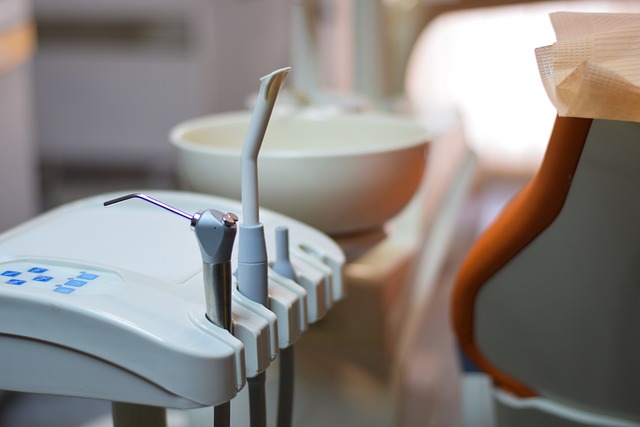

Vlad Dzhashi, MD
I sat down for a detailed discussion about locum tenens dentistry with S.M., DDS., a residency trained dentist who has been practicing for eight years. After spending time in private practice, she decided that locum tenens was a better fit and has been doing this full-time ever since.
We talked about how to best find locums jobs for dentists, types of locums gigs in dentistry, and the demand for locum tenens dentists.
In addition, we discussed examples of a typical locum dentistry assignment, including schedules, procedures, and staffing.
Lastly, we reviewed pros and cons of locum tenens dentistry, pay rates for locums, and touched on negotiation tips
Why did you choose locum tenens as a dentist?
I started doing locum tenens right after I got my license just to get some revenue. Then I joined a private practice, but it wasn’t the best situation. So I parted ways and started doing locums again, and fell into it full-time.
At first I did locums just to keep myself busy, but then I saw the opportunity to gain exposure to different systems, tools and approaches to dentistry. It’s really interesting because you can see regional differences in the patient population. There’s a lot of variety in materials and tools.
Also, I don’t have a family. I don’t have to settle down in one location. I have done a lot of traveling. Many of these communities that I visit are rural communities or places where most people don’t want to go, so dentists don’t go there either. I can leverage that for higher rates.
Best way to find locums jobs for dentists?
I have found that the best way to find jobs is through recruiters. I often look at opportunities offered by locum tenens agencies through Indeed, etc. When a job is finishing I will reach out to them and ask about openings for future dates.
If you have personal connections you might be able to find some opportunities through direct contact with a practice. You would probably be covering for, say, vacations or maternity, and so it would likely be for more short-term.
Demand for locum tenens dentists
There’s definitely a demand for it. It’s just a matter of, how flexible are you, how much are you willing to travel, what kind of lifestyle are you willing to live in. It’s a lot of living in hotels, not having your stuff, being away from family and friends, but again, you can leverage that for higher pay.
The only time I did not have work was during Covid. When Covid hit, I was at a job, but when that contract expired, I couldn’t find another full-time position for six months. But because I was self-employed, I was eligible for a PPP loan- those kept me afloat.
Types of locum tenens dentistry gigs
I would say DSOs (Dental Service Organizations) and FQHCs (Federally Qualified Health Centers) are the ones that are looking for locum tenens the most. Another entity is the correctional facilities. Private practices are typically seeking only short-term coverage for maternity or vacation leaves.
I don’t know if my job experience is typical because I look for long-term positions, but I am open to traveling and serving rural communities. One of my gigs lasted for two years.
Some places have a hard time getting a dentist, and so there is job security. It’s more how long you want to be in that place; do you want to continue being in this particular office or in this particular location, or do you want to go someplace else?
Typical locum tenens dentistry assignment
I dictate my schedule based on what procedures I am comfortable with, how much time I need allotted for a procedure, etc. Sometimes I start a job and appointments and procedures have already been scheduled, but it depends on how trained the staff are as to whether I can keep that schedule.
I am comfortable with my skill set and using different materials and techniques in order to get the results that I need. The weakest link can be the staff. I’ve worked at a practice, for example, where the dental assistants were untrained and I was not comfortable doing some procedures.
What do you do when support staff is inadequate?
My level of comfort really relies on the level of competency and experience of the dental assistants that I work with. Before I go to a site, I always ask about the experience of the staff, but rarely am I able to get an answer.
I am not willing to rush through something if I don’t have the support to get it done the right way, so I’ll hold off things – that’s happened in several practices.
If they’re not able to give me the support, then I’m not able to do the dentistry. I put that on them. I let them know that there is a problem with their staff.
I have actually once quit my assignment because of this problem. At one location I knew it wasn’t going to work out within my first week. I talked to my recruiter because they wanted me to stay for 6 months. I gave it another three weeks or so, but realized it was not a good situation, so I gave my notice.
Pros and Cons of locums for dentists
Some of the pros are what I talked about earlier – being exposed to different ways of doing things, in addition to the flexibility and earning potential.
On the flip side there’s always uncertainty about what you are walking into. Sometimes things are missed or overtreated. It can be difficult to navigate that space and discuss that with patients.
The staff might see that you’re not following a previous treatment plan, and then they question you- that can be a difficult situation. They may see you as transitory. To manage that you have to stand up for what you believe in.
In some situations, they can try to convince you to do procedures or run a schedule that you’re not comfortable with. But in the end, you’re the doctor, it’s your license, and you have to draw the line.
Another caveat is that It is very important to have strong clinical skills before starting locums. Personally, I did a residency, which a lot of general dentists don’t do, so I had even more clinical experience. But even then, I don’t know if I’d recommend this for a new grad. I think this would be a good thing to do for someone that’s been practicing for a couple years.
Locum tenens dentist pay rate and salary
The pay rate on average, if I look through indeed, is anywhere between 90 to $120 an hour. But does that include lodging or miles? I don’t know.
When I started, my pay was $75 an hour. But I didn’t negotiate. After I left private practice I built a reputation. I was able to build my name and could ask for more money. In rural communities I’m able to ask for even more.
I think lots of doctors just accept the rate they are given. They never try to counter or negotiate. The first thing I’ll do is negotiate. Especially in these rural communities, they’re going to have to supplement my income and entice me in some way to get me there. Otherwise, I’ll go someplace else.
When I was at the same place for two years, I asked for two raises. They agreed to it and continued with my contract. If you’re flexible and willing to travel, you can ask for what you want.
Some pay rates are very high, but they include pay for lodging etc. Now my pay rate is 170 an hour, and I get my miles and my lodging paid for or reimbursed. One of my close friends does locum dentistry and makes $200 but she pays for her travel and accommodation.
Also, keep in mind that the DSO’s will typically pay more than the FQHC’s; from what I’ve seen, the DSO’s are more flexible with their rate.
Negotiation tips for locum tenens dentists
It is important to build your relationships, be willing to produce and make money for the practice, earn the reputation of being respectful to staff and patients, be willing to go into those rural communities. As a newbie, maybe use the first job to build your name, and then negotiate a higher locums pay for the next job.
It is important to do your research. For example, if a job has been advertised for a while, and you know there is a need, then even if it’s your first job you can ask for more money, and/or for benefits such as lodging, food and miles. Some things, such as license or DEA renewal, they will cover, but you have to ask for it.
Keep in mind that rural communities tend to pay more and it’s easier to negotiate a higher pay rate as a locums dentist, but they may not be ideal for the new graduate.
Our High-Paying Urology jobs:
$4000/day Urology Locums in York, PA. Clinic only, no call. Close to DC and Baltimore.
$400/hr Urology Locums in Illinois. No call. Clinic/OR.
$5000/day Urology Locums in KY. Call only No clinic.